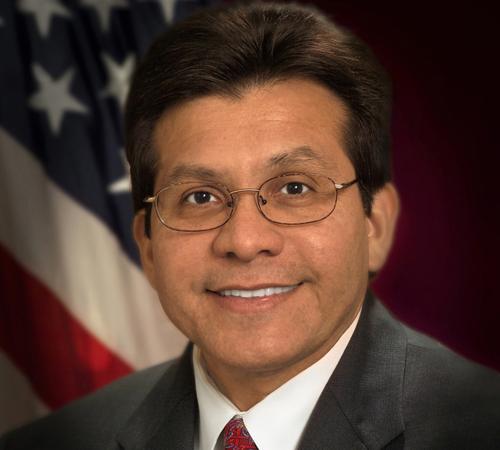Dems fail to nudge Attorney General from office

Gonzales The Associated Press
Jun 12, 2007
Last updated on May 12, 2016 at 12:25 p.m.
WASHINGTON — Republicans blocked the Senate’s no-confidence vote on Attorney General Alberto Gonzales Monday, rejecting a symbolic Democratic effort to prod him from office despite blistering criticism from lawmakers in both parties.
The 53-38 vote to move the resolution to full debate fell seven short of the 60 required. In bringing the matter up, Democrats dared Republicans to vote their true feelings about an attorney general who has alienated even the White House’s strongest defenders by bungling the firings of federal prosecutors and claiming not to recall the details.
Short of impeachment, Congress has no authority to oust a Cabinet member, but Democrats were trying anew to give him a push. Gonzales dismissed the rhetorical ruckus on Capitol Hill, and President Bush continued to stand by his longtime friend and legal adviser.
“They can have their votes of no confidence, but it’s not going to make the determination about who serves in my government,” Bush said in while vacationing in Sofia, Bulgaria. “This process has been drug out a long time,” Bush added. “It’s political.”
Get The Daily Illini in your inbox!
The attorney general said he was paying no attention to the rhetoric on Capitol Hill.
“I am not focusing on what the Senate is doing,” Gonzales said at a nuclear terrorism conference in Miami. “I am going to be focusing on what the American people expect of the attorney general of the United States and this great Department of Justice.”
In addition to the controversy over fired prosecutors, lawmakers of both parties have long complained that Gonzales allowed Justice to violate civil liberties on a host of other issues – such as by carrying out Bush’s warrantless wiretapping program.
“There is no confidence in the attorney general on this side of the aisle,” said Arlen Specter of Pennsylvania, the senior Republican on the Senate Judiciary Committee. Specter voted to move the resolution forward, but he said many of his GOP colleagues would not because they feared political retribution.





